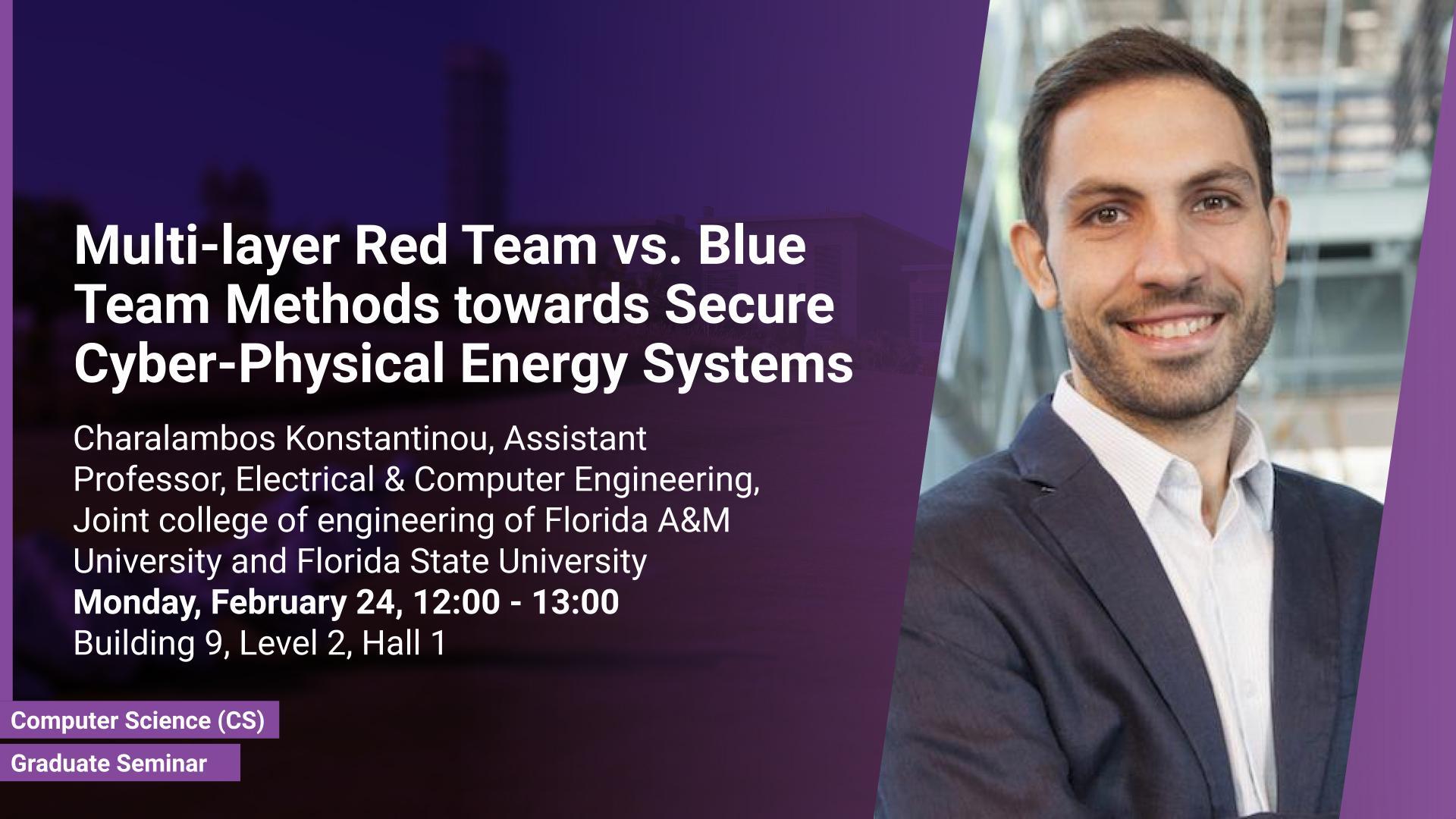Abstract
Election hacking, power grid cyber-attacks, troll farms, fake news, ransomware, and other terms have entered our daily vocabularies and are here to stay. Cybersecurity touches nearly every part of our daily lives. Most importantly, national security and economic vitality rely on a safe, resilient, and stable cyber-space. We rely on cyber-physical systems with hardware devices, software platforms, and network systems to connect, travel, communicate, power our homes, provide health care, run our economy, etc. However, cyber-threats and attacks have grown exponentially over the past years, exposing both corporate and personal data, disrupting critical operations, causing a public health and safety impact, and imposing high costs on the economy. In this talk, we will focus on cyber-physical energy systems (CPES) as the backbone of critical infrastructure, and provide a research perspective and present red team security threats, challenges, and blue team countermeasures. We will discuss recent approaches on developing low-budget targeted cyberattacks against CPES, designing resilient methods against false data, and the need for an accurate assessment environment achieved through the inclusion of hardware-in-the-loop testbeds.
Brief Biography
Dr. Charalambos (Harrys) Konstantinou is an Assistant Professor of Electrical and Computer Engineering with Florida A&M University and Florida State University (FAMU-FSU) College of Engineering. He is the Director of the Decision & Secure Systems Laboratory (DSSlab) leading the Cyber thrust for the Florida State University (FSU) – Center for Advanced Power Systems (CAPS). He received his Ph.D. in Electrical Engineering from New York University (NYU), NY in 2018 and his diploma degree (5-y, M.Eng.) in Electrical and Computer Engineering from National Technical University of Athens (NTUA), Greece in 2012. His research interests focus on cyber-physical and embedded systems security with particular focus on power systems. He is the recipient of the Southeastern Center for Electrical Engineering Education (SCEE) Young Faculty Development Award 2019 as well as the best paper award at the VLSI-SoC 2018. He is a member of the IEEE.
